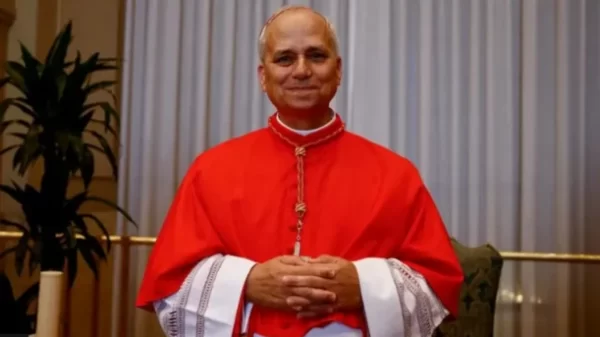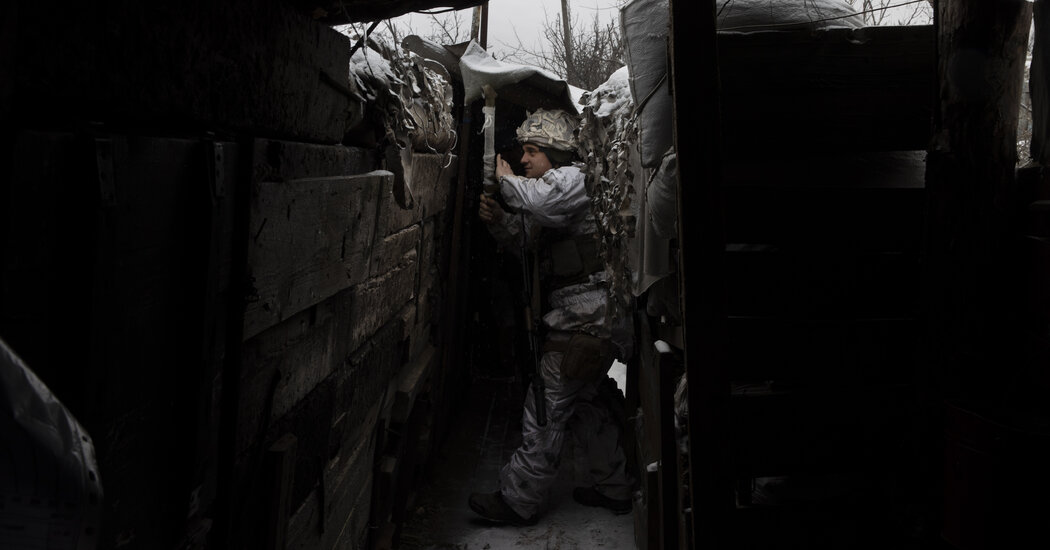The alliance is sending more jets and ships to the region. The decision comes as Britain joined the U.S. in withdrawing the families of diplomats in Kyiv, moves that the Ukraine government called premature.
KYIV — NATO said on Monday that member countries were putting their forces on standby and sending additional ships and fighter jets to Eastern Europe to reassure allies in the region, as Britain joined the United States in ordering families of diplomats out of Ukraine, citing “the growing threat from Russia.”
The moves signaled growing fears of a potential Russian military intervention in Ukraine, as well as increasing concerns about the Kremlin flexing its muscles further afield. Russian troops and equipment are pouring into neighboring Belarus for planned exercises next month that U.S. officials fear are not only directed at Ukraine, but also NATO countries on Belarus’s western border like Poland and the Baltic countries.
On Monday, the government of Ireland said it had raised concerns with Moscow about its plans to carry out naval exercises off the Irish coast next month.
Last week, the Russian defense ministry announced that more than 140 ships and 10,000 sailers would take part in a series of live-fire naval exercises in February across the world, including in the Irish Sea. The goal, according to the ministry, is to “protect Russia’s national interests in the world’s oceans.”
“NATO will continue to take all necessary measures to protect and defend all Allies, including by reinforcing the eastern part of the Alliance,” Jens Stoltenberg, the NATO secretary-general, said in a statement Monday. “We will always respond to any deterioration of our security environment, including through strengthening our collective defense.”
There was no indication in NATO’s statement that any additional forces deployed in Eastern Europe would be used to support Ukraine, which is not a NATO member, in the event of a Russian invasion. Western officials have made clear that NATO forces would not engage militarily against Russia.
Aleksandr V. Grushko, a Russian deputy foreign minister, said NATO’s new deployments were “nothing new,” showing that the alliance “speaks the language of threats and military pressure,” Russia’s Interfax news agency reported.
Ukraine’s government on Monday criticized the State Department’s decision to order family members of the U.S. embassy staff to leave Ukraine, calling it “premature” and the result of “excessive caution.”
The moves by the American and British embassies have clashed with efforts by the Ukrainian leadership to project a business-as-usual image, even as Russian troops, tanks and fighter aircraft continue to assemble around the country’s borders in massive numbers.
“A serious change in the security situation of late has not occurred,” Oleg Nikolenko, the spokesman for Ukraine’s foreign ministry, said in a statement. “The threat of a new wave of Russian aggression has been permanent since 2014, and the build up of Russian forces on the state border began in April last year.”
Understand the Escalating Tensions Over Ukraine
A brewing conflict. Antagonism between Ukraine and Russia has been simmering since 2014, when the Russian military crossed into Ukrainian territory, annexing Crimea and whipping up a rebellion in the east. A tenuous cease-fire was reached in 2015, but peace has been elusive.
While the United States has warned that President Vladimir V. Putin of Russia could order an attack at any time, Ukraine’s government has shown less sense of urgency and has at times presented contradictory assessments of the situation. In an address to the nation last week, Ukraine’s president, Volodymyr Zelensky, played down the threat, urging Ukrainians to remain calm and not “run out for buckwheat and matches.”
“This danger has existed for more than one day and it has it has not become greater,” he said.
In his statement, Mr. Nilolenko, the foreign ministry spokesman, suggested that giving into panic would simply give the Russians a victory as it attempts to sow discord through information warfare.
“The Russian Federation is currently working actively to destabilize the internal situation in Ukraine,” he said. “In this situation it is important to soberly evaluate the risks and preserve calm.”
Despite the pullout of family members and some personnel, both the American and British embassies have been ordered to remain open. The State Department said that the decision was made “out of an abundance of caution,” but that the United States would “not be in a position” to evacuate U.S. citizens should Russia invade Ukraine.
Anton Troianovski contributed reporting from Moscow.




























